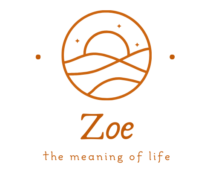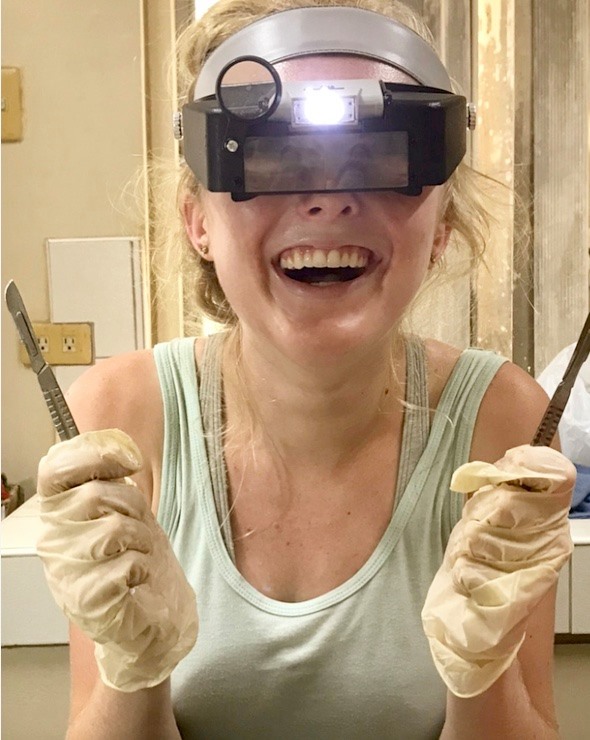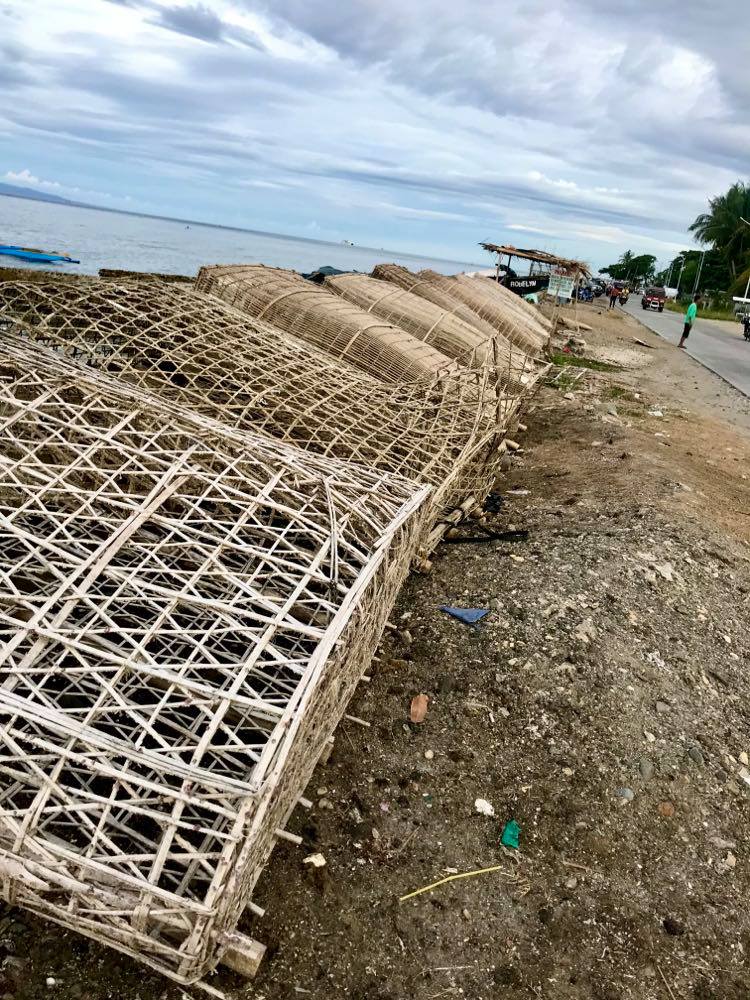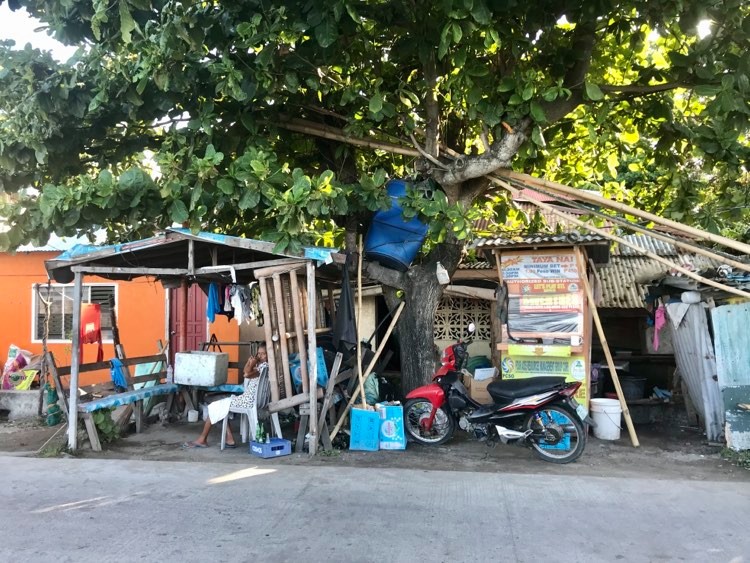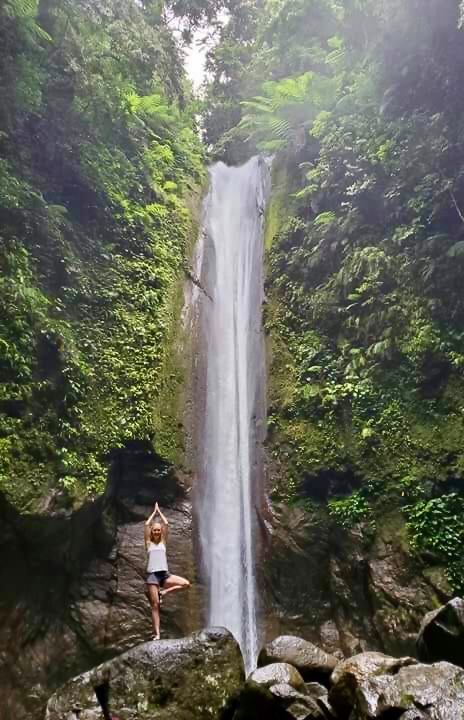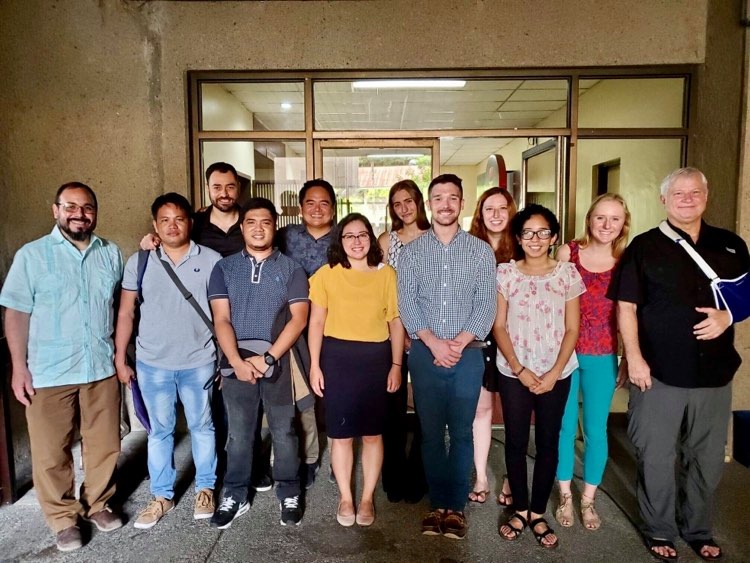Maayong adlaw! Or “Good day!” in Cebuano, a dialect of the Visayan language that is quite prevalent in the Philippines. During the summer of 2019, I had the amazing opportunity of flying 8,693 miles away from home and spending 3 months conducting research in Dumaguete City, Philippines as an intern with the Philippines PIRE Project. The PIRE (Partnerships in International Research and Education) program was established in 2005 by the National Science Foundation to support research and education efforts and foster international collaboration. The research conducted through this project is focused on the Coral Triangle, a marine region in the Indo-Pacific that is recognized as a global epicenter of marine biodiversity. A goal of the Philippines PIRE Project is to span cultural borders so that the biodiversity and speciation of this region can be better understood and therefore protected from environmental stressors.
As one of four interns, I conducted my own research project, from developing my hypothesis and research questions to analyzing the results. My project was a branch-off from the overarching goal of the Philippines PIRE Project, which is to:
“Investigate changes in evolution, connectivity, and community composition of marine fishes of the
Philippines that have taken place over the past century of substantial human impacts.”
My own project involved testing for the effect of selective fishing pressures on the size and reproductive capability of Siganus fuscescens, a prominent reef fish.
Throughout this research project, I learned the importance of thoroughness and task-orientation in my workflow and of interdisciplinary collaboration and pure grit. I came out a better and stronger scientist for it, but that’s not really what this post is about.
What I learned went way beyond science. One can learn science anywhere with the proper amount of instruction and motivation. But learning how to thrive in a foreign environment and how to redefine my “home” are aspects that I will take with me on all walks of life.
I learned how important it is to surround yourself with a support system. The people I met while in Dumaguete quickly became more than just fellow researchers. They became welcoming faces in a foreign environment, karaoke buddies, lenders of encouragement, and partners in adventure. They became a family away from family. We laughed together, we cried together, we stayed up late hours stressing together. Humans are meant for companionship and togetherness. We were not made to walk this world alone, and why should we? Beautiful and supportive relationships are just on the other side of slight vulnerability and a friendly smile.
I learned that more is not always better. Consumerism is so prevalent in America and I believe way too many of us use our material wealth as a measure of happiness. Many of the Filipinos I interacted with and befriended were happy to just BE: be with their family and friends, have a roof over their heads, and eat a warm meal at the end of the day. They encompass the idea that life itself is a gift.
I learned to slow myself down. I was so used to the hustle and bustle of America, the sheer and frequently overwhelming speed of things. In the Philippines, I would walk down the boulevard and see fishermen bringing in their nets and women baking their goods, but not in a rushed manner. Methodically, happily, they would perform their tasks. And they would smile at me in a way that reminded me that it is okay to stop and breathe for a moment. I worked alongside incredibly successful Filipino researchers who also embodied this mentality. Did this inner calm and grounding stop them from being successful? Absolutely not. And really, what is the point of our journey or our successes if we cannot pause along the way and take it all in? Society picks up speed with every passing day, but I hope I can keep this grounding with me and cultivate it.
Above all, it taught me that home is where you make it. On the plane ride over, I cried silently into my headrest for what felt like hours. I was homesick and didn’t know much about adapting to a foreign environment. My what-if thoughts prevailed: “What if my homesickness is too much for me?” “What if I do not adjust well?” “What if I don’t make friends?” “What if my project is a total flop?” ……or……”What if I take it one day at a time and make the most of my time here?” And so I took things in stride and I am so glad I did. With each passing day I became more comfortable. I learned the route to the supermarket, I embraced the constant sweating, I established a running route through the city and enlisted a running buddy. “Home” seemed a blurry idea, and soon my home became my little condo in Dumaguete. Home became a walk along the boulevard at the end of a full day. Home became my family of friends. Be where your feet are, and home can be wherever you make it.
So really, I learned a lot more than hypothesis development, length-weight measurement, and fish dissection. Don’t get me wrong, these were all wonderful skills to learn and it does make me proud to know that my research will be used to support environmental regulation and help sustain fish populations. But what I’m really trying to say is, broaden your idea of “home”, if you can. Escape your hometown; you can always come back. But there really is a big and beautiful world out there, and if you befriend it, it will befriend you in return.
